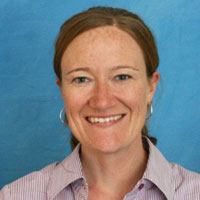Orphaned boys in low- and middle-income countries as vulnerable to abuse as girls, study finds
April 26, 2015
Orphaned children in low- and middle-income countries face a high risk of trauma, with physical and sexual abuse being by far the most prevalent traumatic events. New research shows that orphaned boys in these settings are just as likely to experience abuse as girls. As a result, the authors suggest targeting more support services and prevention programs toward protecting vulnerable boys.
The study, led by Christine L. Gray, MPH, doctoral student in epidemiology at the UNC Gillings School of Global Public Health, was published online April 24 in the journal Global Mental Health. Brian W. Pence, PhD, assistant professor of epidemiology at the Gillings School, is a co-author.Researchers found that physical and sexual abuse affects 12 percent of girls and 14 percent of boys in institution-based care and 19 percent of girls and 20 percent of boys in family-based care annually. By age 13, approximately half of orphans experience abuse, regardless of gender or setting.
Despite similarities in abuse instances across gender, international funding mechanisms—such as the U.S. President’s Emergency Plan for AIDS Relief and the United Nations task force on protection from sexual exploitation and abuse—often place special emphasis on protecting girls, while neglecting the need to protect orphaned boys from abuse.
“The findings show that boys are as vulnerable to abuse as girls,” Gray said. “Funding for support services often focuses on girls, but investment in boys is critically important, too. Providing support to boys not only protects them, but aids in preventing the cycle of abuse. Ultimately, that prevention helps protect both girls and boys.”
Research has shown that experiencing traumatic events such as abuse often leads to a significant long-term burden, adversely affecting one’s health, quality of life and economic productivity in adulthood. These potential outcomes reinforce the need for programs to protect both orphaned girls and boys in low- and middle-income countries who are particularly susceptible to abuse.
The research was conducted as part of the Positive Outcomes for Orphans longitudinal study in Cambodia, Ethiopia, India, Kenya and Tanzania, led by study co-author Kathryn Whetten, PhD, director of Duke University’s Center for Health Policy and Inequalities Research at the Duke Global Health Institute and professor in Duke’s Sanford School of Public Policy. The study was supported by a grant from the Eunice Kennedy Shriver National Institute of Child Health and Development.
The research team also included faculty members in Duke University’s departments of psychiatry, pediatrics and medicine and at Duke’s Center for Child and Family Health.
Share
Gillings School of Global Public Health contact: David Pesci, director of communications, (919) 962-2600 or dpesci@unc.edu.

